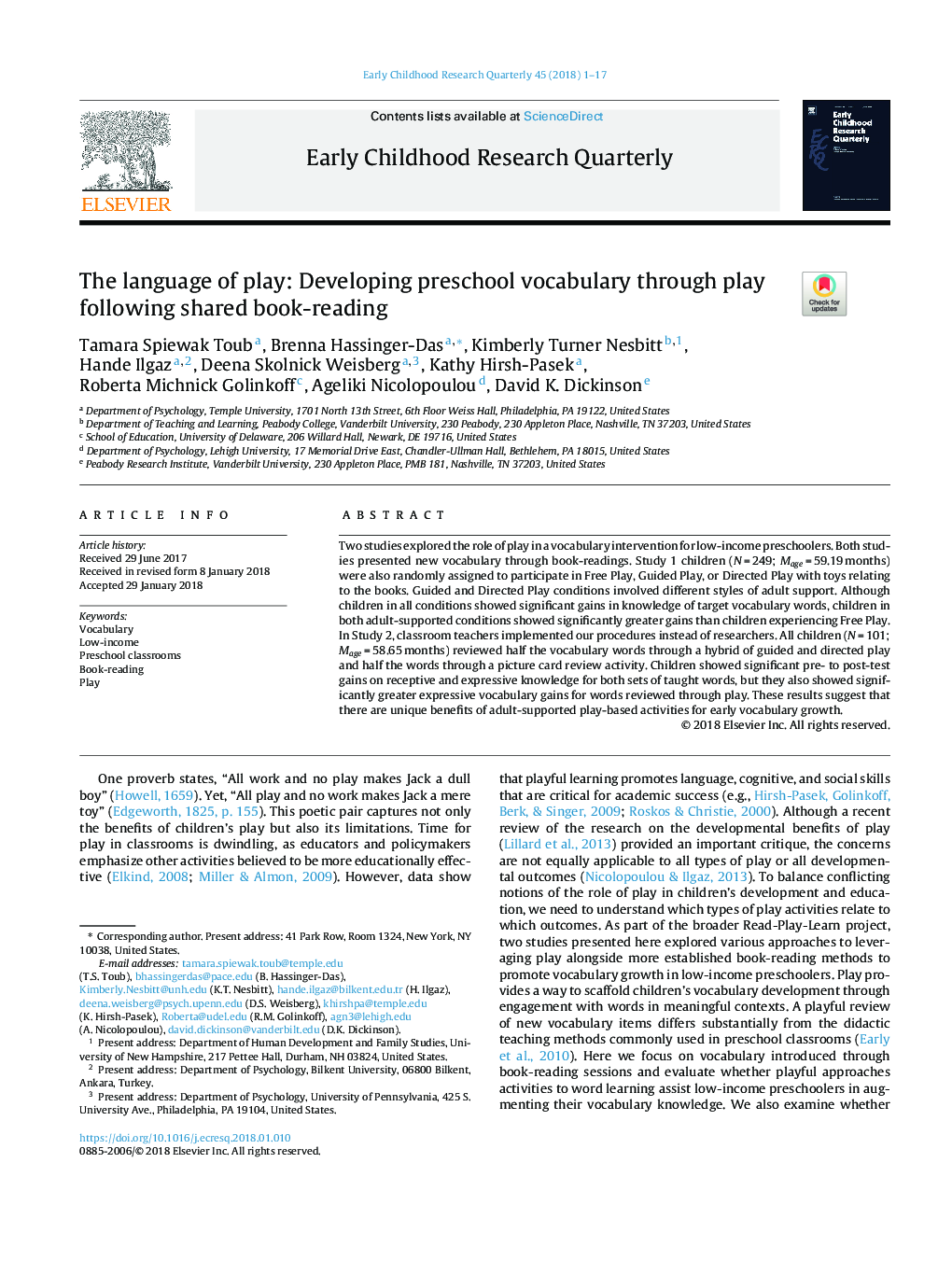| Article ID | Journal | Published Year | Pages | File Type |
|---|---|---|---|---|
| 6840459 | Early Childhood Research Quarterly | 2018 | 17 Pages |
Abstract
Two studies explored the role of play in a vocabulary intervention for low-income preschoolers. Both studies presented new vocabulary through book-readings. Study 1 children (Nâ¯=â¯249; Mageâ¯=â¯59.19â¯months) were also randomly assigned to participate in Free Play, Guided Play, or Directed Play with toys relating to the books. Guided and Directed Play conditions involved different styles of adult support. Although children in all conditions showed significant gains in knowledge of target vocabulary words, children in both adult-supported conditions showed significantly greater gains than children experiencing Free Play. In Study 2, classroom teachers implemented our procedures instead of researchers. All children (Nâ¯=â¯101; Mageâ¯=â¯58.65â¯months) reviewed half the vocabulary words through a hybrid of guided and directed play and half the words through a picture card review activity. Children showed significant pre- to post-test gains on receptive and expressive knowledge for both sets of taught words, but they also showed significantly greater expressive vocabulary gains for words reviewed through play. These results suggest that there are unique benefits of adult-supported play-based activities for early vocabulary growth.
Keywords
Related Topics
Social Sciences and Humanities
Psychology
Applied Psychology
Authors
Tamara Spiewak Toub, Brenna Hassinger-Das, Kimberly Turner Nesbitt, Hande Ilgaz, Deena Skolnick Weisberg, Kathy Hirsh-Pasek, Roberta Michnick Golinkoff, Ageliki Nicolopoulou, David K. Dickinson,
